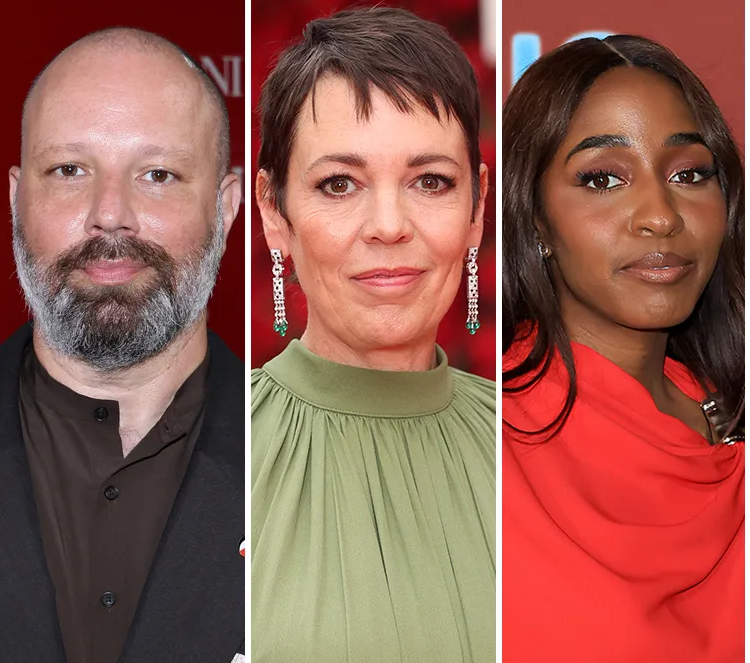In a historic action echoing past anti-apartheid movements, more than 1,300 world-renowned filmmakers, including a significant roster of Oscar, BAFTA, and Emmy Award winners, have signed a pledge to refuse collaboration with Israeli film institutions and companies. The signatories declare they refuse to work with Israeli entities “implicated in genocide and apartheid against the Palestinian people.”
The list of high-profile industry professionals includes actors Olivia Colman, Ayo Edebiri, Mark Ruffalo, Riz Ahmed, Tilda Swinton, Javier Bardem, and Susan Sarandon. Alongside acclaimed writer-directors such as Yorgos Lanthimos, Ava DuVernay, Asif Kapadia, Boots Riley, Ken Loach, and Adam McKay.
“In this urgent moment of crisis, where many of our governments are enabling the carnage in Gaza, we must do everything we can to address complicity in that unrelenting horror” reads the statement.
The pledge, published by the group Film Workers for Palestine, states that it is a direct response to a call from Palestinian filmmakers who have “urged the international film industry to refuse silence, racism, and dehumanization, as well as to ‘do everything humanly possible’ to end complicity in their oppression.”
It explicitly targets institutional complicity and does not call for a boycott of individual Israeli filmmakers.
Film Workers for Palestine, who published the pledge, said on an FAQ page: “Despite operating in Israel’s system of apartheid, and therefore benefiting from it, the vast majority of Israeli film production & distribution companies, sales agents, cinemas, and other film institutions have never endorsed the full, internationally-recognized rights of the Palestinian people.”
Citing the International Court of Justice's ruling, the pledge condemns actions that include “whitewashing or justifying genocide and apartheid, and/or partnering with the government committing them.” Specific institutions named in some reports as targets of the boycott include the Jerusalem Film Festival, Haifa International Film Festival, Docaviv, and TLVfest.
This mass declaration is inspired by the 1987 initiative “Filmmakers United Against Apartheid,” which was founded by Jonathan Demme, Martin Scorsese, and others to protest South Africa's apartheid regime by refusing film distribution in the country.
The Israeli Producers Association has responded to the pledge, calling it “profoundly misguided” and asserting that it “seeks to eliminate precisely the collaborative efforts working toward ending violence and achieving peace.”
For some signatories, the decision is deeply personal. “As the descendant of Holocaust survivors, I am distressed and enraged by the actions of the Israeli state,” said screenwriter and director David Farr. “In this context, I cannot support my work being published or performed in Israel.”
Mike Lerner, an Oscar-nominated producer and director who signed the pledge, commented on his decision. “It is the responsibility of every independently minded artist to use whatever powers of expression they possess to support the global resistance to overcome this horror,” Lerner said. “This pledge is an essential non-violent tool to undermine the deadly impunity that Israel and its allies currently enjoy.”
The initiative is part of a growing wave of protest within the global entertainment industry. It joins an open letter from members of the U.S. actor’s union, SAG-AFTRA, a motion by Britain’s Equity UK affirming arts workers' freedom of speech. A recent resolution by the Norwegian Actors Equity Association recommending its members reject work with Israeli cultural institutions.
Amin El Gamal, actor and chair of SAG-AFTRA’s National MENA Committee, drew a parallel to past union actions. “Standing in solidarity with Palestinian filmmakers shouldn’t only be on us as individual artists. Our unions… have an ethical and legal obligation to take meaningful action,” he said. “In the 1980s, SAG voted twice in favour of the cultural boycott of apartheid South Africa and urged its members to refuse to perform in South Africa or for South African production companies.”
Read the statement: Film workers pledge to end complicity
and the FAQ where they explain the rationale of the campaign








